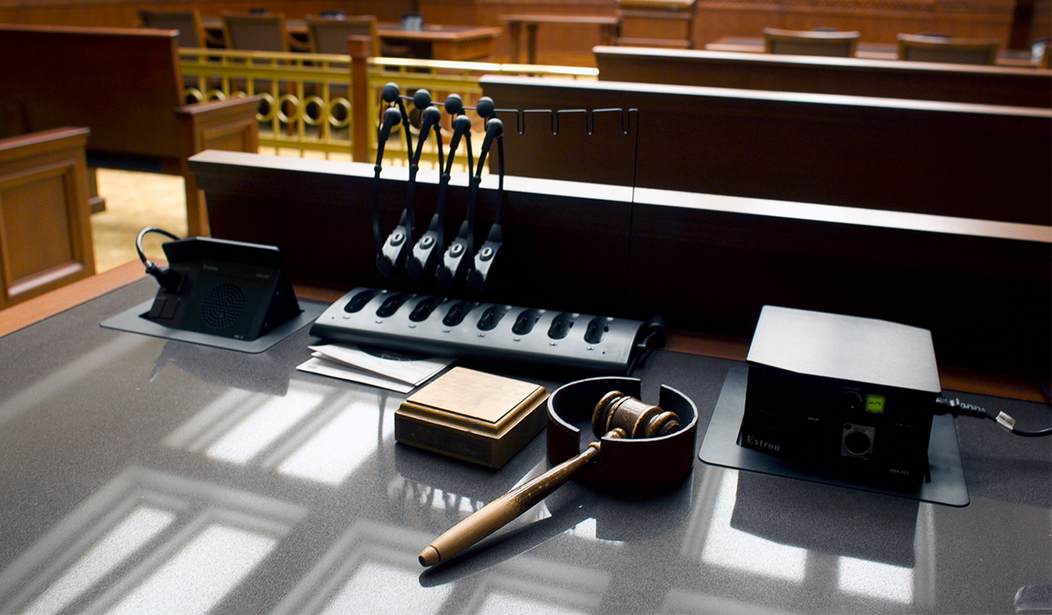The Justice Department has dropped a charge of possession of a short-barreled rifle it originally filed against a man accused of illegally carrying a pistol in the District of Columbia back in 2023, just days after Gun Owners of America and the Firearms Regulatory Accountability Coalition raised concerns about the prosecution in a letter to the U.S. Attorney's Office in Washington, D.C.
🚨BREAKING🚨@theJusticeDept drops short-barreled RIFLE charge for possession of a CZ Scorpion equipped with a PISTOL brace in U.S. v. Taranto. https://t.co/6GcZxQRpAj pic.twitter.com/pC2xuQiDM6
— Gun Owners of America (@GunOwners) April 17, 2025
It's unclear why the DOJ would dismiss the charge without prejudice, which means the U.S. Attorney could choose to refile that charge at any point before the statute of limitations runs out. It's great that the explanation offered in the filing is that it's in the "interest of justice" to dismiss the charge of possessing an unregistered NFA item, but if anything that makes the decision to dismiss without prejudice even more confusing.
It's also worth noting that while Taylor Taranto had the most serious charge against him dismissed, the U.S. Attorney's Office in D.C. is still charging him with carrying a pistol without a permit; a felony-level offense still punishable by up to five years in prison and/or a $12,500 fine.
Awesome news, now let's get them to drop count 2, which should not be a crime anywhere.
— Angus McGeorge (@AngusMcgeorge) April 17, 2025
The new U.S. Attorney in D.C. has made it clear he plans on using the District's gun laws to go after violent felons caught carrying guns, but this is a signal that the statutes will still be enforced even for those without a violent criminal history.. at least if there are underlying causes for concern. As GOA wrote last week in its explainer of the case:
But before we get into the details of the case, let me just point out that GOA & FRAC's interest in this case is the NFA charge for possessing a pistol-braced handgun, nothing else.
We state this clearly in our letter when we say: "We express no opinion on any of the other unrelated charges levied against Mr. Taranto."
This is because Taranto's case stems from an incident on June 28, 2023, where Taranto was stopped by the Secret Service and FBI in Washington DC and charged with the possession of a firearm, and magazines.
But in the hours leading up to his arrest, Taranto had engaged in what charging documents describe as "erratic" behavior, was livestreaming himself and, according to charging documents, "suggested that he had outfitted his vehicle with a detonator."
He then drove his car into DC, specifically into the Kalorama neighborhood, and into an area monitored by the Secret Service, because of its proximity to important government figures.
When the Secret Service approached him, he fled into the woods—the officers gave chase.
And eventually, when the Secret Service arrested him, and conducted a search of his vehicle, they found a CZ Scorpion pistol equipped with a brace, and more.
The Supreme Court has already held that requiring a license to carry doesn't automatically violate the Constitution, and frankly, Taranto would make a terrible test case to challenge that presumption, so I understand GOA and FRAC's decision to focus exclusively on the NFA-related charge from a tactical perspective.
Even though the DOJ seems to have been persuaded by GOA's activism, some pro-2A folks would have preferred to see the prosecution continue, believing it would be a better long term strategy.
Great! But....
— Val (@Val6283243) April 17, 2025
This does not stop it from happening again!
Would rather have seen the DOJ intentionally lose the case!
I hate to break it to Val, but that wasn't ever a realistic possibility. The DOJ could and may very well decide to drop its opposition to the lawsuits challenging the ATF's pistol brace rule, but it's not going to tank a case just to aid the plaintiffs. At this point I'd say the odds are better than 50% that the pistol brace rule is formally repealed before the litigation challenging the rule itself reaches the Supreme Court, which would likely end up mooting the lawsuits altogether.
I'd still like to know if the decision to drop the charge of illegally possessing an NFA item was the result of the USAO deciding that the rule itself is unlawful, or if there were more practical concerns about securing a conviction for possessing a short-barreled rifle when that very same firearm was described as a pistol in Count Two of Taranto's indictment. Either way, this is a good call for the U.S. Attorney to make, but it remains to be seen if this is a one-off or the new standard practice within DOJ.









Join the conversation as a VIP Member